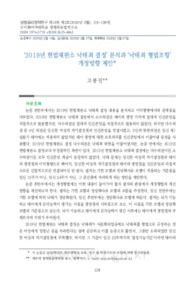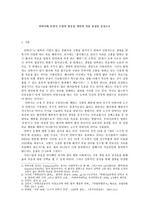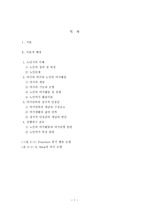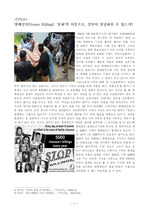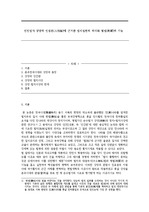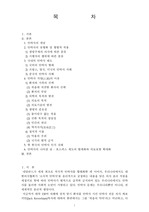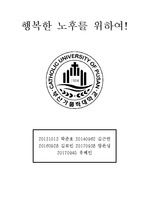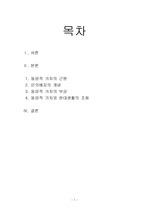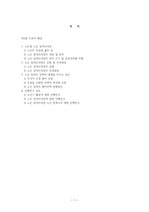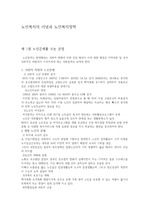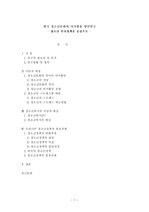

PARTNER
검증된 파트너 제휴사 자료
기능적 관점에서 본 인간 존엄성의 개념사 (Conceptual History of Human Dignity from a Functional Perspective)
45 페이지
최초등록일 2025.05.13
최종저작일
2025.02
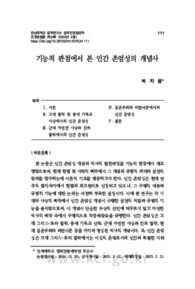
-
미리보기
서지정보
· 발행기관 : 전남대학교 공익인권법센터
· 수록지 정보 : 인권법평론 / 34호 / 111 ~ 155페이지
· 저자명 : 박지용
초록
본 논문은 인간 존엄성 개념의 역사적 발전과정을 기능적 관점에서 재조명함으로써, 현대 헌법 및 사회적 맥락에서 그 개념의 규범적 의미와 실천적 함의를 탐구하는데 이론적 기초를 제공하고자 한다. 인간 존엄성은 현대 민주적 법치국가에서 헌법의 최고원리로 인정되고 있으나, 그 구체적 내용과 규범적 기능에 대한 논의는 여전히 부족한 실정이다. 이에 본 연구는 각 시대와 사상적 맥락에서 인간 존엄성 개념이 수행한 실천적 역할과 규범적 기능을 분석함으로써, 이 개념이 단순한 추상적 선언에 머무르지 않고 다양한 역사적 맥락 속에서 구체적으로 작동해왔음을 규명한다. 인간 존엄성은 고대 그리스・로마 철학, 중세 기독교 신학, 근대 자연권 사상과 칸트 철학, 현대 실존주의와 비판이론 등을 거치며 형성된 역사적 개념이다. 즉, 인간 존엄성은 고대 그리스・로마 철학에서는 이성적 존재로서의 인간의 특별한 지위와 공적 명예를 정당화하는 개념으로, 중세 기독교 신학에서는 신의 형상으로서 인간의 고귀함을 표현하는 종교적 개념으로, 근대 자연권 사상과 칸트 철학에서는 개인의 자유와 권리의 철학적 기초로, 현대 실존주의와 비판이론에서는 기술문명과 인간소외, 전체주의에 대한 비판적 성찰의 준거점으로 각각 기능하였다. 특히 제2차 세계대전 이후 전쟁의 참상에 대한 반성적 고려와 새로운 헌법질서 수립의 필요성이 결합되어, 인간 존엄성의 불가침적 가치가 헌법적 차원에서 보장되어야 한다는 인식이 확산되었다. 특히 독일기본법은 인간 존엄성을 헌법의 최상위 가치로 명시하여, 국가의 모든 입법과 행정, 사법 활동이 이를 존중하고 보호하도록 규정하고 있다. 그러나 인간 존엄성은 특정한 시대적 상황이나 사회적 맥락에 따라 상이하게 해석될 수 있는 다의성을 지니고 있어, 통일된 법적 기준을 마련하는 데 어려움을 초래한다는 비판도 제기되고 있다. 이러한 비판을 극복하기 위해서는 인간 존엄성 개념의 구체적 내용을 현대적 맥락에서 재해석하고 체계화하는 작업이 필요하며, 실제 사례에서 적용 가능한 규범적 기준을 발전시켜야 한다. 또한 인공지능과 생명공학 등 과학기술 발전, 기후변화와 환경위기 등 현대사회의 새로운 도전들에 대한 비판적 성찰의 기준으로 기능하여야 한다.영어초록
This study aims to provide a theoretical foundation for understanding the normative significance and practical implications of the concept of human dignity in contemporary constitutional and social contexts by re-examining its historical development through a functional perspective. While human dignity is widely recognized as the supreme principle of constitutional law in modern democratic states, the specific content and normative functions of this concept remain underexplored. Accordingly, this research analyzes the practical roles and normative functions that human dignity has performed across different historical and intellectual contexts, demonstrating that the concept has operated concretely within various historical frameworks rather than existing merely as an abstract declaration.
Human dignity is a historically constructed concept that has evolved through ancient Greek and Roman philosophy, medieval Christian theology, early modern natural law theory, Kantian philosophy, and modern existentialism and critical theory. Specifically, in ancient Greek and Roman philosophy, human dignity served to justify the unique status and public honor of humans as rational beings. In medieval Christian theology, it expressed the sanctity of humans as imago Dei (the image of God). In early modern natural law theory and Kantian philosophy, it functioned as the philosophical foundation for individual freedom and rights. In modern existentialism and critical theory, it has served as a reference point for the critique of technological alienation, totalitarianism, and human rights violations.
In the aftermath of World War II, the devastation of the war and the imperative to establish a new constitutional order led to the recognition of the inviolable value of human dignity at the constitutional level. Notably, the German Basic Law enshrines human dignity as the highest constitutional value, obliging all legislative, administrative, and judicial actions of the state to respect and protect it. However, human dignity has been criticized for its polysemic nature, which allows for varying interpretations depending on specific historical or social contexts, thereby complicating the establishment of unified legal standards.
To address these criticisms, this study underscores the necessity of reinterpreting and systematizing the concrete content of human dignity in modern contexts and developing normative criteria that can be practically applied to real-world cases. Furthermore, human dignity must serve as a critical benchmark for addressing emerging challenges in contemporary society, such as advancements in artificial intelligence and biotechnology, climate change, and environmental crises. This functional analysis of the historical development of human dignity provides important insights for addressing contemporary challenges to human dignity while maintaining its fundamental normative significance.참고자료
· 없음태그
-
자주묻는질문의 답변을 확인해 주세요

꼭 알아주세요
-
자료의 정보 및 내용의 진실성에 대하여 해피캠퍼스는 보증하지 않으며, 해당 정보 및 게시물 저작권과 기타 법적 책임은 자료 등록자에게 있습니다.
자료 및 게시물 내용의 불법적 이용, 무단 전재∙배포는 금지되어 있습니다.
저작권침해, 명예훼손 등 분쟁 요소 발견 시 고객센터의 저작권침해 신고센터를 이용해 주시기 바랍니다. -
해피캠퍼스는 구매자와 판매자 모두가 만족하는 서비스가 되도록 노력하고 있으며, 아래의 4가지 자료환불 조건을 꼭 확인해주시기 바랍니다.
파일오류 중복자료 저작권 없음 설명과 실제 내용 불일치 파일의 다운로드가 제대로 되지 않거나 파일형식에 맞는 프로그램으로 정상 작동하지 않는 경우 다른 자료와 70% 이상 내용이 일치하는 경우 (중복임을 확인할 수 있는 근거 필요함) 인터넷의 다른 사이트, 연구기관, 학교, 서적 등의 자료를 도용한 경우 자료의 설명과 실제 자료의 내용이 일치하지 않는 경우
“인권법평론”의 다른 논문도 확인해 보세요!
-
AI시대에 디지털 의료기기의 법적 문제 ― 디지털의료제품법을 중심으로 ― 34 페이지
코로나19 팬데믹은 우리 의료 환경에 엄청난 변화를 가져왔다. 기존에 의사 ᐨ 환자 중심의 대면 진료가 어렵게 되면서 비대면 진료가 필요하게 되었다. 2020년 2월부터 한시적으로 전화 진료를 허용하였고, 코로나19의 종식을 선언한 이후에도 비대면 진료에 대한 허용을 요구하는 목소리는 계속되었다. 최근 여러 상황의 변화로 디지털 헬스케어의 관심이 확대되었고.. -
범죄를 저지른 외국인의 강제추방에대한 연구― 유럽인권재판소 판례를 중심으로 ― 38 페이지
범죄를 저지른 외국인은 반드시 추방되어야 하는가? 체류 외국인의 수가 증가함에 따라 이러한 고민은 필연적으로 수반된다. 국가는 일국의 안보 및 질서를 유지할 필요가 있다. 따라서 국가의 이익이라는 관점에서 범죄를 저지른 외국인은 추방의 대상이 될 수 있다. 그런데 외국인 개인의 입장에서 강제추방은 외국인 당사자의 사생활 및 가족생활을 존중받을 권리를 침해할..
찾으시던 자료가 아닌가요?
지금 보는 자료와 연관되어 있어요!
문서 초안을 생성해주는 EasyAI

